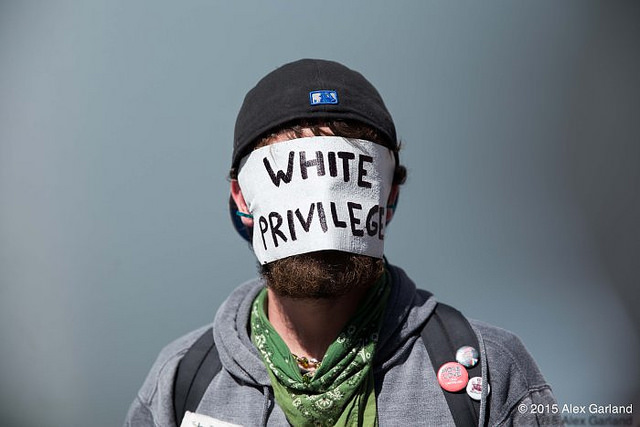Let me start this out by saying that I’m pretty much as white as it gets.
I was born in Canada, but as far as I can tell, my ancestry is linked almost exclusively to the British Isles. Therefore, I lack the lived experience to completely understand what I’m talking about, and if I put my foot in my mouth and say something offensive, allow me to apologize for that right off the bat, because I might not recognize it if I do.
But, more and more frequently, I can’t help but notice my fellow white people refusing to acknowledge, or even denying the existence of, “white privilege.”
I think I understand where this denial comes from. They hear the words white privilege and automatically assume it’s something they’ve personally done wrong. They feel like they’re being called out on something or being attacked, when that really isn’t the case at all. I think a lot of this feeling comes from misunderstanding what white privilege is.
Put simply, white privilege is a systemic condition in a society that accepts that white people are “the norm” or even “superior.” This automatically prescribes everyone not white as “the other.”
White privilege is an societal imbalance that inherently benefits white people (hence the name “white privilege”).
White privilege is being able to watch pretty much any Hollywood film and know that someone of your race will appear at some point, and they will not be represented as an offensive stereotype.
White privilege is being able to forget that racism exists if you want to.
White privilege is, god forbid, having your daughter not come home after a night out, and not having to wonder whether the police will actually investigate her disappearance or not.
And, of course, simply being white does not mean that your life is easy, or that you don’t face inequities. There are an infinite amount of other factors that alter your experience within society—gender, class, sexual orientation, disability, mental illness—but being white does mean that you experience privilege in comparison with others. It is possible to be privileged in some ways and not in others. Nobody is dismissing your experience when they accuse you of having white privilege.
It is important to recognize your privilege—not because it makes you any lesser of a person, but because it might help you to understand your standing in society, and the standing of others.
For example, let’s say that you’re in line at the supermarket. You go through, the cashier is incredibly courteous, you go on your way and all is well. Yet, the black woman behind you goes through, and the same cashier is dismissive, abrupt, and overall difficult. In that specific scenario, you experienced white privilege, but it was not something that made you any lesser of a person.
You reaped the benefits of it, most certainly, but it was the fault of the cashier who expressed blatant racism, as well as the fault of the society that told her that that racism was okay for her to feel and act on. You only become at fault in this scenario if someone afterward tells you that you experienced white privilege, and your response is, “That wasn’t white privilege! That’s just how she should treat every customer! Why do you hate white people so much?”
Why you are at fault is because that response isn’t helping anything. That response dismisses the fact that there is a problem, and places the blame on the person who is simply trying to call the problem out. Because, yes, that is how the cashier should treat every customer, but she didn’t. Saying that what you experienced was white privilege does not mean that you should have been treated worse, and it does not mean that the black woman should have been treated better than you. It means that you should have been treated the same and you clearly weren’t.
Too many white people hear the words white privilege and immediately associate it with hate. They argue that it’s demonizing white people, saying that they’re evil because they receive privilege—but that isn’t the case. The purpose of calling out white privilege is to point out that there is an imbalance in society, and that imbalance needs to be fixed. It’s not necessarily the white person who is malicious (unless they are the one upholding it). It is the society that said that it was okay for a white person to be treated better than a person of colour. That is what is being called out with the words “white privilege.” That is the problem.
We need to stop immediately assuming that any attempt to change society is made out of hate. We need to stop allowing these systems to continue because we feel uncomfortable when they are questioned. And we need to stop dividing ourselves between “us” and “them,” assuming that every attempt to become equal is actually an act of hate and oppression.
What we need to do is acknowledge our differences, acknowledge the ways in which we are privileged, and we need to fight to create a world where no one systemically benefits over another.
~
~
~
Author: Ciara Hall
Image: Flickr/backbone campaign
Editor: Travis May












Read 1 comment and reply